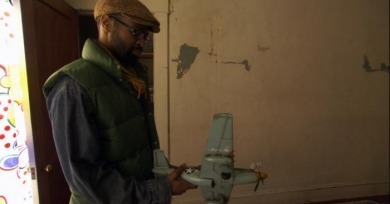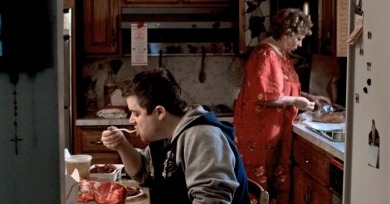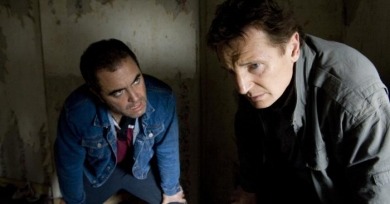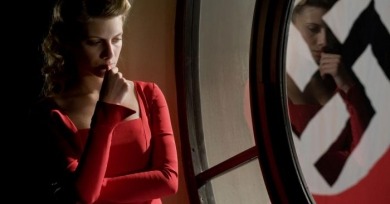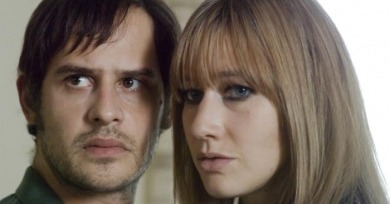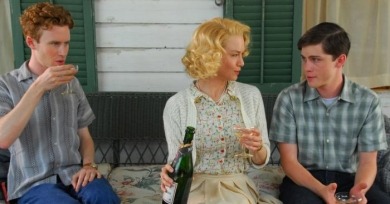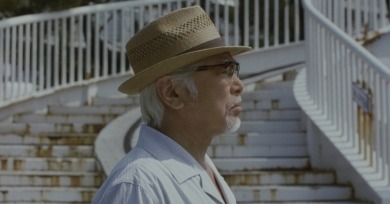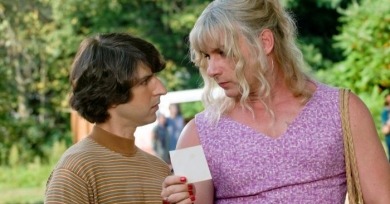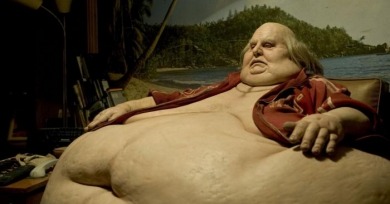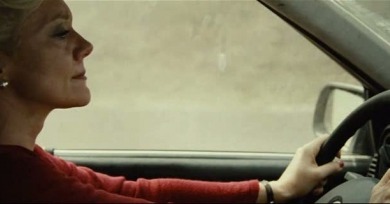Reviews
A rallying cry for the put-upon boss, Mike Judge's Extract makes for a perverse double feature with Office Space, Judge's cult favorite about cubicle life.
In Leslie Cockburn’s American Casino, a former mortgage bond salesman makes a familiar argument when he asserts that the country’s drive towards fiscal suicide was fueled by “greed.”
Sports fandom is rarely depicted in the movies, but whenever it is it’s usually portrayed as the domain of obsessive, stunted, sociopathic creeps.
In its depiction of the outcome of World War II, Tarantino doesn't just provide revisionism, he implicitly, and winkingly, acknowledges the subjectivity of film historicity.
The Baader Meinhof Complex, produced and adapted by Bernd Eichinger (who also wrote Downfall, which chronicles Hitler’s last days) from a book by journalist Stefan Aust, attempts to dramatize the events that led to the group’s abrupt rise and slow but noisy fizzle.
My One and Only, directed by Richard Loncraine, follows the trio as they navigate a series of potential suitors and long stretches of Route 66; predictably, their journey doesn’t quite proceed as planned.
Hirokazu Kore-eda’s films are haunted by the specter of death—from the exquisite undercurrent of loss infusing Maborosi to the explicitly gimmicky conceptualization of the hereafter in After Life to the looming danger hovering over the abandoned children of Nobody Knows.
Need it be said that The September Issue would likely not exist if not for The Devil Wears Prada?
While some would call it middlebrow, I prefer to think of the Lee-Schamus project as classical. Director Ang Lee and screenwriter-producer James Schamus construct traditionally plotted stories in which characters struggle to be, become, and love.
For American audiences only familiar with Japanese director Hayao Miyazaki’s animation through the Walt Disney–trademarked theatrical releases his last few films have received in the U.S., Ponyo, his latest feature, might seem a change of pace.
Although each section could work as a freestanding piece, Palfi invites the viewer to recognize visual and textual rhyme, and he modulates tone within as well as between the sections.
In each of Martel’s first three features, a mysterious incident confounds characters and viewer alike, setting a tone that the Argentine director sustains yet also narratively subverts.

